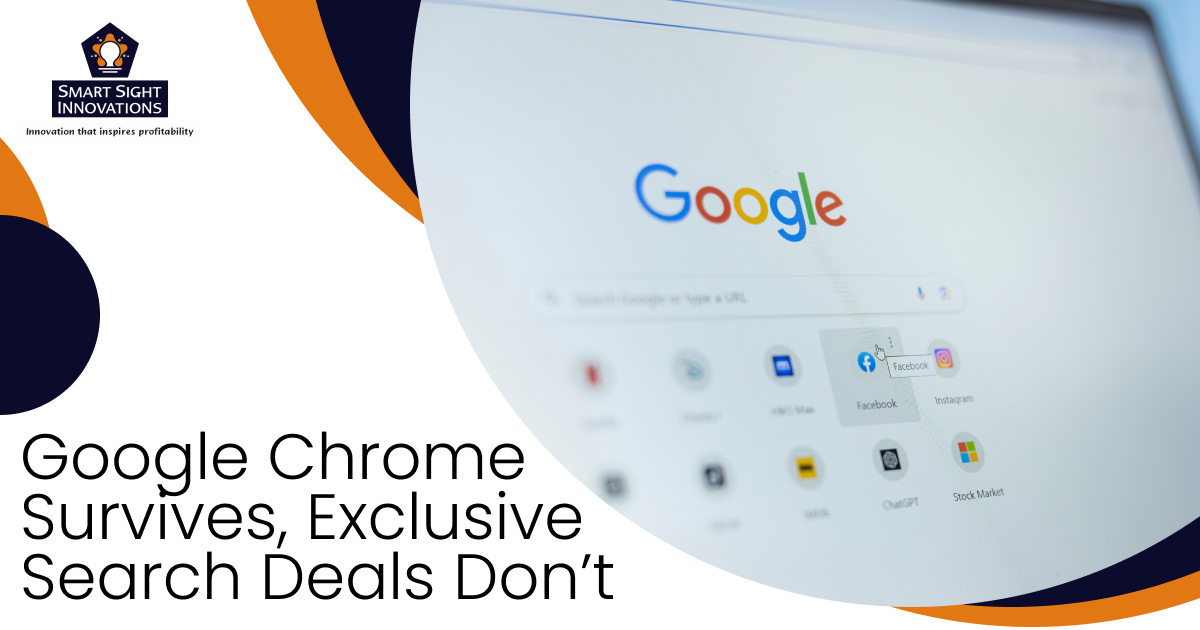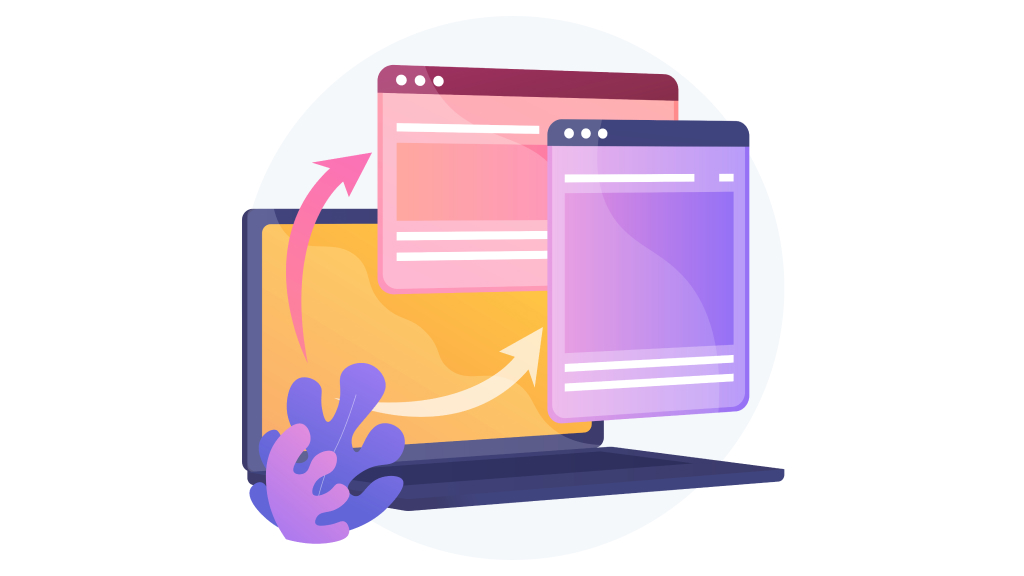
For more than a decade, Google has faced criticism for using its financial and technological clout to cement its dominance in search. Exclusive search agreements with browser and smartphone makers, worth billions of dollars, were at the heart of the controversy, as they ensured Google remained the default search engine on devices such as Apple’s iPhone and Samsung’s Galaxy phones.
Regulators argued these agreements didn’t just give Google an edge; they effectively closed the door on meaningful competition, stifling innovation and leaving little room for challengers to grow in an era when search is expanding into AI-driven answers and assistants. That approach is now undergoing a significant shift.
In a landmark ruling, U.S. District Judge Amit Mehta stopped short of breaking up Google’s empire by sparing Chrome and Android, but he struck directly at the distribution tactics that fueled its dominance. By banning exclusive search contracts and ordering limited data-sharing with rivals, the court has redrawn the rules of online search.
The Court’s Order

Judge Amit Mehta’s remedies focus primarily on how Google distributes search and related services. The ruling prohibits Google from entering or maintaining exclusive contracts that make Google Search the only or default search engine on partner devices and properties, a practice the Department of Justice (DOJ) argued helped Google lock in market dominance. The order explicitly covers distribution of Google Search through Chrome, default settings on browsers and devices, Google Assistant, and the Gemini app.
In addition to striking down exclusivity, the court required Google to provide limited access to certain search indexes and user-interaction data to competitors, a narrowly tailored data-sharing requirement intended to give rivals the ability to compete more effectively in both traditional search and emerging generative-AI “answer engines.”
Why Chrome Wasn’t Divested

The DOJ contended that Google relied on Chrome and Android as key channels to preserve its search monopoly, and some plaintiffs pushed for a breakup of these assets. Judge Mehta declined to order a sale of Chrome or Android, reasoning that those remedies would be overly disruptive and exceed the court’s focus on distribution practices tied to search.
How Big a Change Is This?

Practically, the decision removes one of Google’s most powerful competitive levers, the ability to pay or contract partners to make Google Search the exclusive default. That could open up room for rival engines (from smaller players to large entrants like Microsoft’s Bing and OpenAI’s chat-based products) to negotiate non-exclusive placements or compete on feature parity rather than on per-device payouts. But the ruling stops short of forcing Google out of the browser or breaking its historic Apple default deal, arrangements that had underpinned much of Google’s revenue.
Initial Reactions

Regulators, advocacy groups and many publishers hailed the move to restrict exclusivity but criticized the remedies as too modest. Antitrust experts and opponents of big tech argued the decision failed to address the root scale of Google’s dominance, calling the penalties a “slap on the wrist.” Meanwhile, investors and industry groups welcomed the outcome because it avoided severe structural remedies that could have disrupted large swathes of the digital ecosystem.
Google’s own statement said the company disagrees with the underlying monopoly finding and warned the remedies could raise privacy and implementation questions; it also emphasized the court’s recognition that forcing a Chrome or Android divestiture would have gone “beyond the case’s focus” and harmed consumers and partners. Google is reviewing the order and expected to appeal.
Why the Ruling Matters for AI and the Future of Search

Judge Mehta’s language and the scope of the data-sharing requirement have particular significance for generative AI and “answer engine” products. The order’s bar on exclusive distribution was written broadly enough that it could apply to AI chatbots and assistant apps that bundle search and answers, meaning Google cannot cut off rivals by striking exclusive placement deals for AI access or distribution on phones and apps. The technical committees and oversight mechanisms the judge signaled could also touch how AI models access and use search-derived signals.
That matters because access to high-quality query logs, click data, and indexing signals is a competitive advantage for companies training models that produce concise, sourced answers. If rivals obtain access to a slice of that data, they may be better positioned to build competitive AI products that don’t rely solely on Google’s ecosystem. But the ruling leaves many operational details unresolved, exactly how data will be shared, for how long, and under what privacy safeguards, so the practical impact will be revealed only during implementation and appeals.
Implementation Details and Market Responses

While the ruling against Google’s exclusive search contracts is clear in principle, the implementation phase will determine its real impact. Judge Mehta’s order requires Google to end agreements that made its search engine the default on browsers, smartphones, and other devices.
However, regulators stopped short of mandating exactly how companies like Apple, Samsung, or Mozilla should redesign their onboarding processes. That leaves room for multiple approaches, from giving users a choice screen during device setup, to rotating default engines, to leaving the default blank until the user selects one. Google will also need to provide limited data-sharing with competitors, ensuring they are not disadvantaged in improving their products.
The market response to the ruling has been cautious but noteworthy. Rivals such as Microsoft’s Bing welcomed the decision, seeing it as a chance to reach users who previously stuck with Google simply because it was preinstalled. Industry observers, however, note that simply removing default status may not automatically translate into significant market share shifts.
Device makers and browser companies face a different set of considerations. Apple, which has relied on multibillion-dollar payments from Google for making its search engine the iPhone’s default, may need to rethink the economics of its services business. Smaller players like Mozilla could benefit from more freedom to experiment with partnerships, though the financial trade-offs may be substantial.
From Wall Street’s perspective, the ruling has not dramatically shaken confidence in Google’s long-term revenue outlook. Alphabet’s stock showed only modest movement after the decision, reflecting investor belief that advertising demand and user loyalty will continue to sustain the company’s dominance in the near term. Still, analysts caution that as AI-driven search alternatives gain traction, Google’s position could weaken faster without the buffer of exclusivity agreements.
Implications for AI Search and Future Competition

The ruling arrives at a pivotal moment for the search industry, as the landscape is already shifting from traditional keyword-based queries to AI-driven discovery and answers. Tools like Microsoft’s Copilot, OpenAI’s ChatGPT, Perplexity, and emerging AI-native browsers are redefining how users access information. By curbing Google’s ability to rely on exclusive default placements, the court has effectively opened more space for these challengers to compete.
For AI-first platforms, the opportunity lies in greater visibility. Without being overshadowed by pre-installed Google defaults, companies experimenting with conversational and multimodal search may find it easier to attract users willing to try alternatives. This could accelerate consumer adoption of AI assistants that not only return web links but also generate summaries, context, and recommendations in real time.
For Google, the decision represents both a challenge and an incentive. While losing exclusivity may expose it to more competition, it also forces the company to continue evolving its own AI search capabilities. Google has already rolled out AI Overviews in Search and is investing heavily in Gemini-powered assistants. The removal of contractual barriers means Google’s products must compete more directly on performance, relevance, and user experience, not on distribution advantages.
The broader competitive implications extend to device makers and developers as well. If browsers and smartphones begin offering choice screens or rotating defaults, the market could see increased experimentation in how AI search is integrated at the system level.
However, experts caution that AI search is still in its early stages. Questions remain around accuracy, cost, and monetization models, which could slow adoption despite greater visibility. For now, Google continues to command the largest pool of user data and advertising infrastructure, advantages that rivals cannot yet match.
Still, the ruling sets a precedent, as regulatory actions that lower barriers to entry could amplify shifts in a market where AI is poised to reshape user expectations. Over the next few years, competition in search may be defined less by contractual defaults and more by which platform delivers the most trusted, efficient, and personalized answers.
The antitrust ruling against Google marks a turning point in how the search market is regulated and contested. By requiring the company to give up exclusive search deals while allowing it to retain Chrome and Android, the court avoided a breakup but targeted the very tactics that cemented Google’s dominance for years.
For consumers, the outcome promises greater choice. For competitors, it signals a more level playing field. And for Google, it underscores a new reality, as dominance in search will no longer be secured by contracts alone but must be earned through sustained innovation in a rapidly evolving digital landscape.














